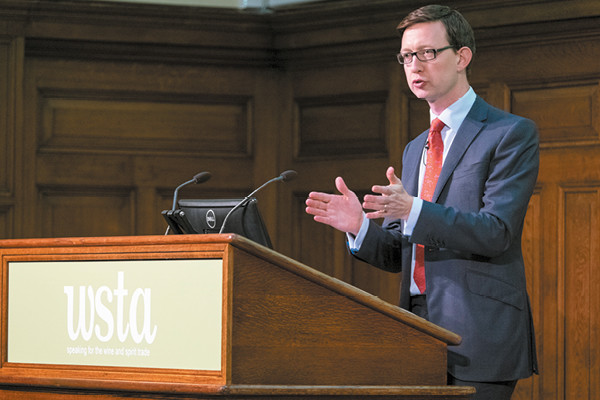
WSTA Summit: 2050 is closer than you think
Sustainability initiatives shouldn’t be regarded as a post-Covid pipe dream, the WSTA’s chief executive has said. They are now a vital component of what consumers and investors expect businesses to offer.
In his ‘horizon scanning’ outlook for the industry, delivered on the opening day of the WSTA’s annual summit, Miles Beale said the past view of CSR (corporate social responsibility) activity being focused on “demonstrating absence of doing bad” is now a thing of the past.
Now, reducing carbon footprint, energy efficiency and limiting water use are all part of a base-level of expectation.
Detail of how the UK will reach its commitment of becoming carbon neutral by 2050 is currently “scant”, Beale said.
Despite a lack of government planning however, that milestone date “isn’t as far away as you might think”.
He said: “The sale of new diesel and petrol cars in the UK will be prohibited in less than 15 years, from 2035, while the proportion of energy produced from renewable sources is rapidly growing.
“In 2018, 33% of all UK energy usage came from renewables and this rose to a record 47% in the first quarter of 2020. So we’re seeing action already and behaviour changes so business needs to be thinking what carbon neutrality means for them.”
He added: “Now, the consumer is demanding evidence of doing good.”
Beale also spoke about the importance of social responsibility for the sector, with emphasis on the Community Alcohol Partnerships (CAP).
This “best in class” example of an industry-sponsored initiative is now in its 14th year.
Improvements in CAP areas include a 50% decline in regular drinking among 13-16 year olds, a fall of 40% in alcohol-related ASB (alcohol-related antisocial behaviour), and an 80% improvement in compliance with Challenge 25 scheme.
As well as being prepared to lead on environmental and social change, Beale said “We must be prepared to stand up for what we want and what we believe in”.
This includes standing firm against plans to fold glass into an upcoming Deposit Return Scheme, which is due to be rolled out across England, Scotland and Wales.
“It smacks of policy based evidence making. There is an absence of policy justification – because we already recycle more glass than the target. So what problem is including it within DRS seeking to address?” he said.
He added: “We have a similar situation approaching with the government’s sensible focus on tackling obesity, and its related consultation on calorie labelling of alcoholic drinks. Short-term opportunism is dividing the alcohol sector, which plays into the hands of those that are intent on hobbling, restricting and curtailing our industry at a time when we need when we need a strong voice and united leadership.”
Keywords:
- UK
- WSTA
- Beale
- energy
- past
- despite
- carbon
- currently
- summit
- carbon neutral
- CSR
- wsta’s
- commitment
- base level
- currently “scant”
- becoming carbon
- expectation details
- becoming carbon neutral
- footprint energy efficiency
- summit miles beale
- reducing carbon footprint
- carbon footprint energy




